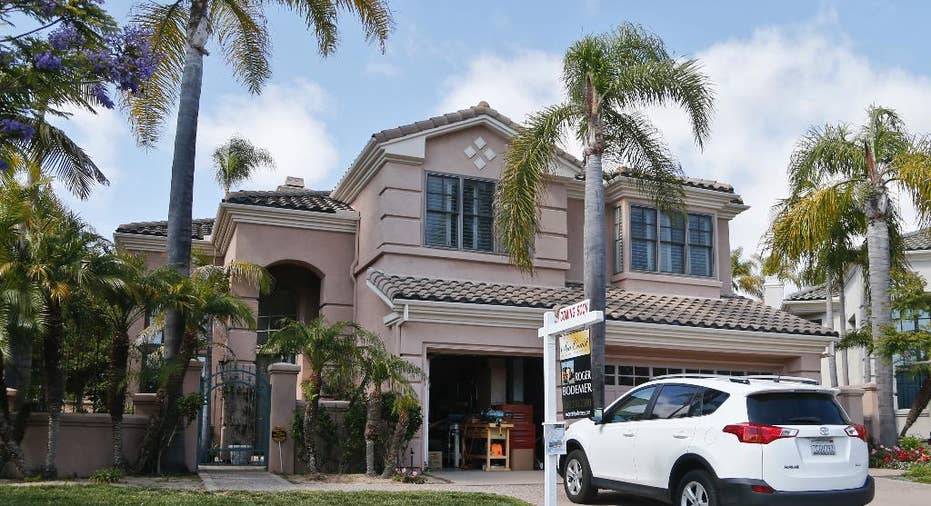Mortgage rates keep rising after Trump's election win

WASHINGTON – Long-term U.S. mortgage rates continued to surge this week in the aftermath of Donald Trump's election win.
Mortgage giant Freddie Mac said Wednesday that the average rate on a 30-year fixed rate loan shot up to 4.03 percent, the highest since July 2015 and up from 3.94 percent a week earlier. The rate on 15-year home loans climbed to 3.25 percent, up from 3.14 percent last week and highest since January.
Long-term U.S. interest rates have climbed since Trump was elected Nov. 8. That is largely because bond investors believe the president-elect's plan to cut taxes and spend massively on roads, bridges, airports and other infrastructure could ignite inflation. When they foresee rising inflation, investors demand higher long-term rates and pay lower prices for bonds.
The yield on 10-year Treasury notes has risen from 1.87 percent on Election Day to 2.38 percent Wednesday.
The expectations of economic stimulus from tax cuts and higher infrastructure spending that are driving up interest rates have also pushed stocks higher. On Wednesday, the Dow Jones industrial average closed above 19,000 for the first time.
Still, rising mortgage rates pose a threat to the housing market. Low mortgage rates have helped fuel a rally in home sales. The National Association of Realtors said Tuesday that sales of existing homes rose 2 percent in October to a seasonally adjusted annual rate of 5.6 million — strongest pace since February 2007.
That's also helped lift home prices. The median price of a previously occupied U.S. home has risen 6 percent over the past year to $232,200.
Higher mortgage rates, along with rising house prices, could eventually reduce demand for housing.
Typically, as mortgage rates rise, buyers feel more of an urgency to purchase a home before rates rise further. That can lead to a short-term spike in sales. But if rates continue to climb, many buyers, particularly those living in pricier coastal markets, could find it tough to qualify for a loan.
"Certainly there are households on the margin where the difference between 3.5 and 4 percent is the difference between qualifying for a loan and not qualifying for a loan," said Ralph McLaughlin, chief economist at housing data provider Trulia.
Mortgage rates will likely keep rising until there's some more understanding of where the economy and housing policy are headed, McLaughlin said. But he doesn't expect U.S. home sales to weaken dramatically unless rates rise to 5 percent.
The Commerce Department reported Wednesday that fewer Americans bought new homes in October, though they are still 12.7 percent higher than they were a year ago. A tight supply of new homes has limited sales.
To calculate average mortgage rates, Freddie Mac surveys lenders across the country between Monday and Wednesday each week.
The average doesn't include extra fees, known as points, which most borrowers must pay to get the lowest rates. One point equals 1 percent of the loan amount.
The average fee for a 30-year mortgage was unchanged at 0.5 point. The fee on 15-year loans stayed at 0.5 point.
Rates on adjustable five-year loans climbed to 3.12 percent this week from 3.07 percent. The fee was unchanged at 0.4 point.
___
AP Business Writer Alex Veiga in Los Angeles contributed to this report.



















